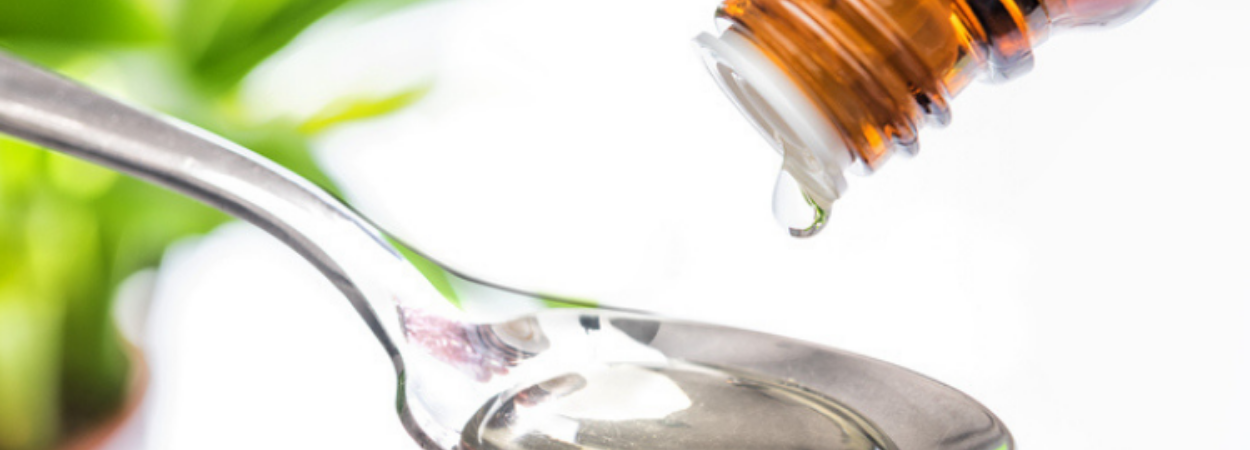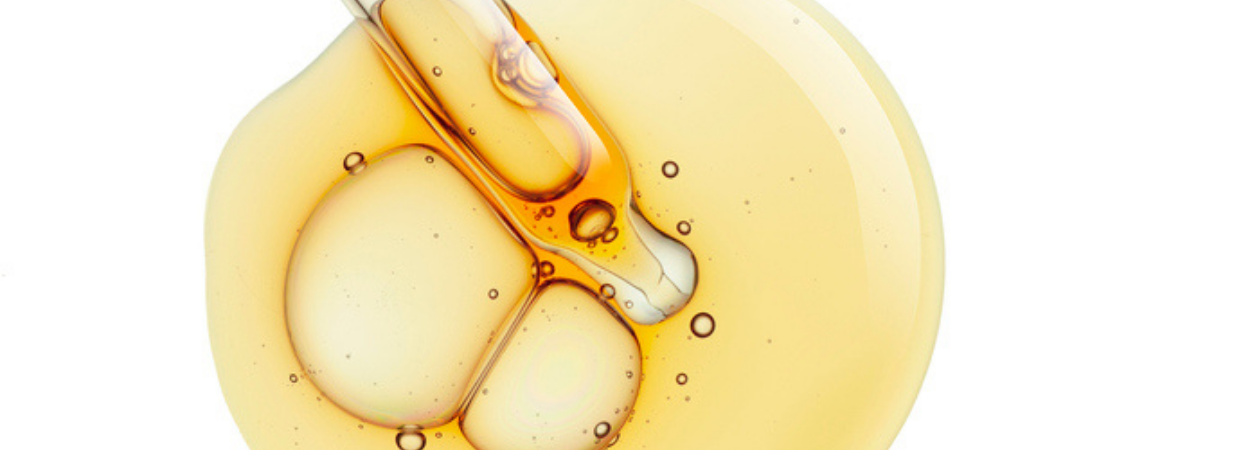Liquid Supplements: Uses, Benefits, Pros & Cons

The science of supplementation continues to fascinate doctors and patients alike. Even after decades of research, there is still much to learn about how the human body depends on vitamins, minerals, phytonutrients, and other compounds for optimal health and wellness.
Nutraceuticals date back to the mid-20th century, when clinicians began exploring how to isolate specific vitamins and minerals necessary not just for human health to thrive—but to support ongoing or acute health issues, as well. Now we know significantly more about the science of supplements, and one major discovery includes the advantages of liquid supplements for vitamins, herbs, and other phytonutrients.
This guide provides extensive information about the science, uses, and benefits of different types of liquid supplements. You’ll also learn about why some nutrients are more beneficial when administered in a liquid form, and who tends to benefit most from these preparations.
READY? LET’S GET STARTED!
DON'T HAVE TIME TO READ THE ENTIRE GUIDE NOW?
Fill out a downloadable PDF version of the guide you can reference later.
INTRODUCTION
The science of supplementation continues to fascinate doctors and patients alike. Even after decades of research, there is still much to learn about how the human body depends on vitamins, minerals, phytonutrients, and other compounds for optimal health and wellness.
Nutraceuticals date back to the mid-20th century, when clinicians began exploring how to isolate specific vitamins and minerals necessary not just for human health to thrive—but to support ongoing or acute health issues, as well. Interest in and use of supplements has only grown over time, especially with ever-modernizing agricultural practices and the rise in processed and packaged foods—both factors that have negatively impacted the nutrients we get from our meals.
In 1994 the Dietary Supplement Health and Education Act was passed, which defines a dietary supplement as a product intended to: “…supplement the diet that bears or contains one or more of the following dietary ingredients: a vitamin; a mineral; an herb or other botanical; an amino acid; a dietary substance for use by man to supplement the diet by increasing the total dietary intake; or a concentrate, metabolite, constituent, extract, or combination of any ingredient described.”
Fast forward to today, when we know significantly more about the science of supplements. One major discovery includes the advantages of liquid supplements for vitamins, herbs, and other phytonutrients.
This guide provides extensive information about the science, uses, and benefits of different types of liquid supplements. You’ll also learn about why some nutrients are more beneficial when administered in a liquid form, and who tends to benefit most from these preparations.

CHAPTER 1: WHAT ARE LIQUID SUPPLEMENTS?
Liquid vitamins (or other liquid supplements) are just as they sound: nutraceuticals that come in liquid form and are taken using a dropper, small cup, or shot glass. When comparing liquid vitamins to pills, one is not necessarily better or worse—their benefits depend on a person’s specific and unique biochemistry. It’s also vital to consider the active ingredient, as well as your goals for taking any given supplement.
Nutrients delivered in liquid are usually either liposomal, water, or alcohol-based. Liposomal delivery offers an excellent option for nutrients with a reputation for being difficult to absorb—such as vitamin C—as well as nutrients that need to bypass the primary stages of metabolism. Herbs are often delivered in an alcohol-based solution (although water is also used), since alcohol is a powerful solvent that extracts herbal compounds and active ingredients like essential oils, resins, and alkaloids. Alcohol also works as a natural preservative and is quickly absorbed.
Capsules, tablets, and other supplements in pill form must dissolve before their active ingredients become available to the body. Factors such as age, stomach acid levels, medications, pH, and other digestive issues can easily impair absorption. Liquids don’t require this same level of breakdown in the digestive tract, typically resulting in quicker assimilation and absorption.
CHAPTER 2: WHY USE SUPPLEMENTS, AND WHY LIQUIDS?
In an ideal world, the bulk of our nutrients will come from a whole foods diet, rich in a variety of plants. Nutrients from foods work synergistically and set the stage for optimal absorption and assimilation.
In the real world, obtaining adequate levels of every nutrient our bodies need is challenging due to depleted nutrients in soil, high levels of stress, a diet history of highly processed foods and refined sugar, toxins in our foods and environment, and other factors that can deplete nutrient levels or contribute to deficiencies. Individuals who are vegan, vegetarian, or who have other nutritional restrictions might also need to supplement with specific macro- or micronutrients to ensure adequate levels.
Nutritional supplements include vitamins, minerals, amino acids, enzymes, herbs, and other beneficial compounds to human health. They come in different delivery systems, such as soft gels, capsules, tablets, powders, and liquids. Each administration method can achieve a different goal, and liquid administration is recently gaining traction in functional and integrative medicine for a variety of reasons.
For some people, traditional supplements— like tablets or capsules—show relatively low absorption due to GI tract degradation, liver metabolism, and low absorption in the small intestine. Alternatively, specific liquid delivery systems protect nutrient and chemical compounds, improving biocompatibility and increasing the likelihood of delivering the intended dose to the targeted cells and body tissues.
Once a healthy diet is in place, certain supplements can fill in nutritional gaps or help you obtain a higher dosage of a specific nutrient that you’ll maintain with foods later. A doctor or practitioner might also recommend a supplement to address a particular health challenge.

WHY LIQUIDS?
There is no one-size-fits-all approach to supplementation, but experts are discovering increasing reasons why liquid vitamins are highly beneficial for most people. The following factors explain why.
More bioavailability
Liquid vitamins are usually more bioavailable because they don’t need to be actively broken down (unlike pills, capsules, or tablets). As such, they are ideal for people with digestive issues, though everyone more easily absorbs them. Since they come into contact with stomach acid more freely, the absorption of nutrients in liquid form is often superior.
Pills and tablets come with bonding agents, stabilizers, and fillers that give them structure, stability, and a longer shelf life than liquid supplements. However, these additives sometimes lead to decreased bioavailability. The quality and sources of these additives must also be called into question and purchased from a reliable and professional supplement manufacturer.
Can be administered in higher doses
Liquid vitamins naturally lend themselves to situations requiring high dosing, such as boosting nutrient levels to optimal levels when someone needs additional support. To reach high dosing with pills and tablets can be difficult, as no one wants to take twenty pills per day. A liquid vitamin achieves the same dosing much more efficiently and comfortably. Complying with a supplement plan also becomes more manageable, as people are far more likely to remember fewer doses of a liquid supplement than multiple doses of a pill.
Easier to swallow
Kids aren’t the only ones who don’t like swallowing pills. Sometimes adults dislike swallowing pills, tablets, and capsules or have a medical condition that makes it difficult. Anyone with an issue swallowing pills is a perfect candidate for liquid vitamins.
Promotes full ingestion
Preliminary research suggests that the chemistry of taste plays a significant role in fully ingesting and absorbing a supplement. The act of tasting activates nutrient pathways and targets specific areas of the body, enabling the active ingredient of a supplement to be better utilized.
In one study of malnourished patients in a hospital setting, the patients who received protein drinks directly into the stomach via a tube absorbed around 30% of the nutrients. On the contrary, those who tasted the drink first and then were given the same amount via a tube experienced almost 100% utilization. While more research is needed, many nutrition professionals stress the clinical importance of tasting supplements for maximum results.

CHAPTER 3: LIQUID DELIVERY SYSTEMS
Like any supplement, not all liquid supplements are created equal, and the active ingredient impacts which type of liquid supplement will function best.
The term ‘liquid vitamins’ encompasses a wide range of options, each offering particular benefits and uses. When choosing the best liquid vitamin for you, you and your practitioner should consider the nutrient or herb being administered, the required dosage, and the quality of the herb or supplement.
Liquid vitamin products include liposomal, water, and alcohol-based herbal preparations and liquid supplements in a water or oil base, depending on the nutrient. Some herbs are also prepared using honey or vinegar.
TYPES OF LIQUID VITAMINS
The main types of liquid vitamins and supplements fit into the following categories. Your integrative practitioner can help determine which products best suit your personalized supplement regimen.
Liposomal
Practitioners have understood certain aspects of the science behind liposomes for centuries, but it wasn’t until the 1970s that researchers started studying how to use them to administer pharmaceutical drugs more effectively. By the 1990s, liposomal products had hit the market. More recently, the nutraceutical industry advanced this technology by applying it to nutritional supplements.
By arranging phospholipids into a spherical cell membrane with pockets of water and water-soluble compounds, researchers created a capsule that would protect active ingredients from stomach acid and other inhospitable digestive conditions.
Many pharmaceutical companies use liposomal delivery via injection. However, nutraceuticals commonly offer orally administered liposomal supplements through liquids and sprays.
Lipids are molecules such as triglycerides, cholesterol, and fatty acids that can’t be dissolved in water. They play a significant role in supporting cellular membrane structure and function in the body. Liposomes are microscopic, fat-soluble vesicles derived from lipids. The science of liposomal liquid supplements uses liposomes to encapsulate and transport the active ingredients of supplements to the body, allowing them to be more efficiently absorbed.
The theory of liposomal delivery highlights how nutrients are protected against the harsh environment of the GI tract, therefore increasing oral uptake in the mouth and uptake into the cells.
Pioneers in nutraceutical science believe liposomal delivery is the next step in advancing supplementation. Doctors are also starting to favor this delivery method because their patients see results and reap more benefits than with traditional delivery.
Water-based herbal preparations
Herbs are often prepared as liquid tinctures, and water-based tinctures are an excellent choice for children or people who cannot consume alcohol. Alcohol is a natural preservative that extracts the plant’s medicinal components. Water also extracts active plant compounds, so most traditional tincture extractions are prepared with a combination of alcohol and water, depending on the specificities of the herb itself.
Many water-based liquid herbal supplements are combined with glycerol or glycerine instead of ethanol for extraction. Glycerol isn’t the optimal solvent choice for extraction, as it doesn’t work well with certain herbal properties and constituents, such as saponins, essential oils, or resins. However, water and glycerol can be an excellent option for pregnant women and children who can’t or prefer not to take alcohol-based tinctures.
Alcohol-based herbal preparations
Ethanol (or alcohol) extractions are the most common tincture preparations, since alcohol works as a preservative and extracts active plant components. Depending on the herb, varying ethanol percentages are used to extract phytochemicals from medicinal herbs. Typically a 40-60% ethanol has maximum effectiveness for extraction. Essential oils sometimes require closer to 90%, and the range can differ depending on the plant.
Children can take alcohol tinctures, and doctors find that some recovering alcoholics do well with alcohol-based liquid supplements, while others prefer to avoid them altogether. You can easily remove alcohol from tinctures using hot water. Simply bring an ounce of water to a boil and allow to cool for a few minutes, then add your tincture dose and drink.
Vinegar and honey-based herbal preparations
Herbal tonics prepared with vinegar and honey don’t offer the same medicinal properties of alcohol preparations and are often referred to as elixirs or syrups.
Liquid Supplements
Liquid vitamins and supplements that don’t fit into the above categories are usually delivered with either a water or oil base. Fat-soluble liquid vitamins A, E, and D are administered with oil for proper absorption, while others might be water-based. Many liquids can also be used topically, although it’s best to discuss this option with your doctor.

CHAPTER 4: WHO BENEFITS FROM LIQUID SUPPLEMENTS?
While most people can benefit from liquid vitamins and supplements, the following groups of people are likely to reap more benefits from liquids, as opposed to other administration methods.
CHILDREN
Unfortunately, many supplements for children are nothing more than candy. Liquid vitamins can provide an easier-to-administer product for kids at a higher dosage.
Kids are often unable to swallow pills or dislike doing so, making liquids more ideally suited to their needs. Since taste is a big factor in children’s supplements, it’s critical to find a high-quality product that uses safe preservatives and sweeteners. Some companies use artificial sweeteners to cover up the taste of liquid supplements for kids, so do your homework when deciding on a brand.
Many children’s supplements, like gummies or chewable vitamins, are also high in sweeteners, and their levels of necessary minerals and vitamins are deficient. Kids often love them due to their sweet taste, but their nutritional value can be severely lacking.
According to pediatric nephrologist Dr. Matt Hand, dosing in children’s vitamins can be very misleading for parents: “For example, if a therapeutic dose for a particular child is 1,000-2,000 mg of omega-3 fats and her parents purchase a pediatric supplement with 50 mg of omega-3 fats in three gummies, the child may have to take the entire bottle in one day to receive a therapeutic dose.”
This is just one example of the many vital nutrients for children’s health, especially those needing a supplemented dose in higher levels to support a specific health issue. Dr. Hand points out that common supplements necessary for children that can be effectively delivered in liquid form include omega-3 fatty acids, vitamin D, probiotics, and zinc. Always discuss supplementation for children with their integrative pediatrician.
PEOPLE WHO CAN’T OR PREFER NOT TO SWALLOW PILLS
Children aren’t the only ones who struggle to swallow pills, tablets, or capsules. Some adults struggle with a pronounced gag reflex or another medical reason that inhibits their ability to swallow pills. Similarly, many people simply dislike swallowing pills, and anyone who fits into this category is more likely to comply with a liquid vitamin protocol.
Common signs that you have trouble swallowing pills include a sensation of choking, food or pills getting stuck in the chest or neck, reflux or regurgitation, heartburn, pain, or gagging when swallowing. These are all issues that should be discussed with your doctor. Groups more prone to these issues include young kids, seniors, stroke survivors, pregnant women, and those with esophageal scarring.
PEOPLE WITH DIGESTIVE ISSUES
The human digestive tract presents harsh, acidic conditions that easily compromise nutrient viability in both foods and supplements. Traditional pills or tablets are more prone to decreased efficacy in those with GI problems and absorption issues.
Trouble absorbing nutrients is increasingly common. Disruptions in the digestive tract can occur at varying stages of digestion and for many different reasons. For example, you might have low levels of essential enzymes or an overgrowth of bacteria that inhibits proper digestion and absorption of nutrients. Always speak with your doctor if you suspect a problem with digestion. Common signs include loose stools or trouble going to the bathroom, excessive gas, stomach discomfort, or a sensation of weakness.
Many integrative doctors recommend liquid supplements in these cases due to their increased bioavailability and rate of absorption.
PEOPLE WHO NEED A HIGH DOSE OR ARE TAKING MULTIPLE SUPPLEMENTS
Nobody wants to take twenty pills per day. If someone needs to take many pills or tablets, liquids can be an excellent way of administering high doses without swallowing multiple pills, tablets, or capsules.

CHAPTER 5: LIQUID VITAMINS FOR SPECIFIC HEALTH CHALLENGES
While liquids are used for a variety of reasons, the following nutrients are most commonly used to support a range of specific health challenges.
LIQUID MELATONIN FOR SLEEP AND IMMUNE SUPPORT*
Melatonin works exceptionally well in a liposomal delivery system for regulating the circadian rhythm and enhancing immune function.*
Researchers first suspected that melatonin might play a significant role in immune function after observing shift workers with continually changing sleep schedules.* The workers experienced erratic levels of melatonin production and presented with poor health outcomes.* Observing these workers inspired researchers to more closely examine how sleep hormones interact with immune response and impact inflammation in the body.
Consistent, high-quality sleep is fundamental to our overall health. Without it, the hypothalamic-pituitary-adrenal (HPA) axis activation correlated with the stress response doesn’t get a chance to turn off. Our immune system suffers as a result. Melatonin dietary supplementation can reset the circadian clock and increase the quality and regularity of sleep.* Healthy levels of melatonin can also significantly support the immune system.*
When medical providers and researchers examine immune function, they consider many markers, one of which is Natural Killer (NK) cells. NK cells are white blood cells that play a critical role in the immune response by eliminating cells associated with infection. Researchers have linked melatonin with NK cells, specifically the interleukins IL-1, IL-2, IL-6, and IL-12. Melatonin is also linked to CD3 and CD4 protein complexes, which are T cell co-receptors. Melatonin also helps to activate Th1 lymphocytes by modulating IL-12.*
These qualities of melatonin highlight its role as a cytokine regulating hormone and further assert its significant impact on immunity, inflammation, and even hematopoiesis (blood cell production).*
When melatonin protected by a liposomal capsule reaches its intended destination, it can be processed through diffusion instead of cell fusion. In diffusion, the compound slides into the membrane of the cell naturally. Cell fusion occurs when cells combine to create a larger cell. Diffusion is more akin to how human cells naturally interact, which reduces the loss of nutrients during the transfer. Ultimately, liposomal delivery allows for more rapid activation of the transported melatonin.
Using liposomal melatonin may improve sleep quality and support the immune system.* Although melatonin is exceptionally well tolerated, even by children, it is a hormone and must be treated as such. Make sure to consult with your preferred health care professional before adjusting your dosage.
Liquid vitamin C for immune support, heart health, and optimal iron levels*
One study explicitly looking at liposomal C found higher concentrations of the vitamin in the body when compared to a non-liposomal vitamin C. These findings suggested that liposomal delivery increased intracellular delivery and provided higher bioavailability.
Choosing a high-quality brand that uses safe and natural sweeteners and preservatives in their liposomal C products is most important. All liquid vitamins naturally grow bacteria, so preservatives are necessary. The quality of these preservatives and sweeteners matters—some companies use artificial sweeteners and other potentially harmful additives and fillers, which you always want to avoid.
Liquid vitamin D for bone strength and immune health*
Many people are familiar with vitamin D, yet inadequate levels are still surprisingly common. According to CDC data gathered from 2001 to 2006, roughly one-quarter of the United States population was at risk of inadequate vitamin D levels. An additional eight percent were at risk for deficiency. Ensuring that vitamin D levels are up to par can be tricky, as only trace amounts are available through diet by foods. Most people don’t live in parts of the country where sufficient levels can be gained from sun exposure. If you live above the Mason Dixon line, there’s a good chance that your vitamin D serum levels are low.
Liposomal delivery of vitamin D is the most effective method for optimal absorption because it encapsulates nutrients and compounds into highly fat-soluble lipid vesicles. Also necessary to keep in mind is that there are two types of vitamin D: vitamin D2 and vitamin D3. Vitamin D3 is considered the superior form when supplementing, as it is more active and easily absorbed.
Most studies on vitamin D supplementation do not include the use of liposomal delivery. So, even though it makes logical sense that vitamin D would do better with this delivery method and doctors have seen better results with liposomal delivery than with tablets, capsules, or gummies, more clinical studies are needed to back up this clinical observation.
Even so, many health professionals find that liposomal vitamin D provides increased absorption. The vitamin itself is protected against oxidation and degradation as it moves through the body, making it more bioavailable and more likely to provide optimal benefits. Liposomal vitamin D seems to be better protected against oxidation and degradation than pills or tablets and, consequently, delivers its benefits more efficiently and effectively. These benefits amplify when vitamin D is taken alongside vitamin K2, a nutrient that synergistically pairs with vitamin D to support bone strength and development, and more.*
LIQUID VITAMIN A FOR EYE HEALTH, IMMUNE SUPPORT, AND HEALTHY FETAL DEVELOPMENT*
Vitamin A is a group of fat-soluble compounds essential for eye health, immune support, healthy hair and skin, and optimal reproduction and fertility.* As with other fat-soluble nutrients, vitamin A works well when delivered in liquid form.
If you are vegan, vegetarian, or don’t regularly eat dairy, fish, liver, or meat, you might not be getting sufficient vitamin A. If you don’t eat enough fat with your meals, the body might not effectively convert the beta carotene from vegetables into the active vitamin A form.
Many practitioners recommend liposomal vitamin A for optimized bone health, clear skin, strong vision and comfortable, moist eyes, a healthy mucosal lining in the gut, oral cavity, sinuses, and lungs, and for anyone who isn’t eating or absorbing enough vitamin A.*
CHAPTER 6: POTENTIAL DOWNSIDES AND CONSIDERATIONS WITH LIQUID VITAMINS
One potential downside of liquid vitamins is their taste. By nature, nutrients and herbs often have an unpleasant flavor, meaning that their liquid preparation could come with massive amounts of sweeteners. Liquids are susceptible to bacterial growth, so they must include a preservative. Alcohol is a great option, and other choices might be rosemary oil or citric acid. Make sure to choose a company with impeccable quality and safety standards.
There are no contraindications to liquid vitamins, but there are instances when pill form is better. For example, a slower absorption rate is sometimes preferable, especially with zinc, magnesium, and B vitamins. In any situation when the gut microbiome will benefit from slower versus quicker absorption, pill or tablet supplements could be superior to liquid. Lastly, some people might experience loose stools or unpleasant digestive issues with liquid vitamins, in which case pills might be a better option.
CONCLUSION
There is still much to discover about the science of liquid supplements. To date, we know that liquid supplements offer indispensable benefits for many people, like increased bioavailability and absorption, better supplement plan compliance, and higher or more meticulous dosing when needed.
High-quality liquids can be an essential alternative for children, anyone who can’t or prefers not to swallow pills, and people who need a high dose of a particular nutrient or herb. While more research is required, liquid preparations such as liposomal, alcohol and water-based herbal tinctures, and other oil and water-based liquid vitamins seem to provide exceptional efficacy compared to more traditional pills, tablets, and capsules.
As always, it’s essential to consult with your practitioner to choose the liquid vitamins that best fit into your personalized plan.

